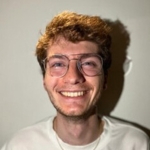Workshop Program
Thursday, September 25 - Workshops
Hall 4, MEETT Exhibition Center, TOULOUSE
10:15am-10:45am
55% of mechanical accidents are due to handling: what if your tools were 80% lighter?
55% of industrial accidents in the mechanical engineering sector are linked to manual handling and are holding companies back. Discover the process in which we have innovated to reduce the weight of tooling by 80%: carbon draping over an additive manufacturing core.
4:20pm-4:50pm
Developing Parametric Sets to Deliver Flying Space Metal Additive Manufacturing Parts
"This workshop will delve into the core aspects of our innovative approach. The reasons behind the creation of new parametric sets will be explored, highlighting the drive for improved performance and efficiency. The methodology behind the development of these sets will be detailed, showcasing the integration of advanced technologies and design principles. Through a case study featuring Scalmalloy®, the practical application of our approach will be demonstrated, emphasizing the tangible benefits. Lastly, strategies for disseminating the outcomes of our parametric advancements will be elucidated, focusing on the promotion of collaboration and knowledge exchange."
4:55pm-5:25pm
Ways to Improve Carbon Footprint in the AM Value Chain
"Additive Manufacturing via Laser Powder Bed Fusion is nowadays a widely used process to achieve complex parts for Aerospace applications. The energy consumption of the process chain is high: the valuable raw material (e.g. a nickel- or a niobium-based alloy), is transformed into fine powder by inert gas atomization. The resulting powder yield for 3D printing is commonly below 50%. In the subsequent printing process, an average value of about 63% of the powder is transformed into the printed part. In this presentation, ways to improve the energy efficiency of these process steps are discussed with a special focus on aerospace alloys (e.g. IN718, GR-Cop42 or Nb-C103). "
Thursday, September 21 - Workshops
MEETT Exhibition Center, TOULOUSE
09:55am-10:25am
AM for Space: Status and advancements in L-PBF and DED
"This workshop gives insights into current and upcoming applications for Space and Aerospace players based on L-PBF. What are the highlights and what are hurdles, that need to be tackled in the next years and months?
What is more, it will provide a status on currently ongoing R&D projects, that show the pro’s and con’s of DED for space applications and what it will take to industrialize DED.
As a final highlight, it will reveal, how L-PBF and DED could be combined to enable applications that will contribute to the future success of moon-landing missions."








